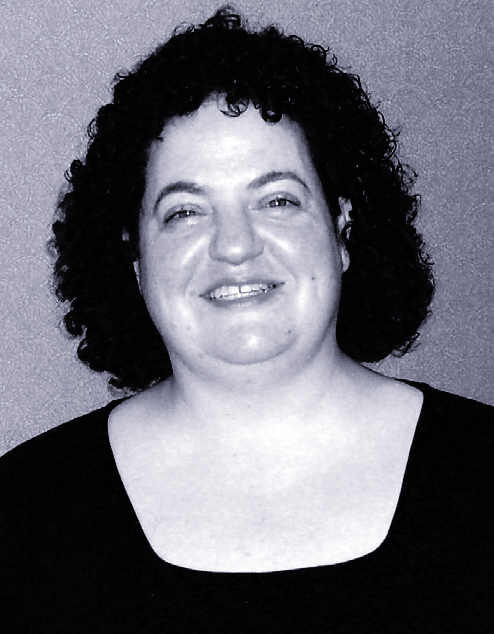What is Israel?

By Rabbi Haviva Horvitz , Temple Beth Sholom Middletown
Stop anyone on the street and ask the question, “What is Israel?” The answer you will get might be: “Israel is a Middle Eastern country on the Mediterranean Sea.”
Perhaps someone with a little more knowledge would include that Israel is regarded by Jews, Christians, and Muslims as the biblical Holy Land.

One could also add that its most sacred sites are in Jerusalem, referencing specifically the Temple Mount complex — which includes the Dome of the Rock shrine, the historic Western Wall, and Al-Aqsa Mosque — and the Church of the Holy Sepulcher.
Someone else, perhaps, would focus on Israel’s financial hub, Tel Aviv, which is known for its beaches and Bauhaus architecture.
If you look up the question on Wikipedia, you will find that:
“Officially the state of Israel is a country in the Middle East, on the southeastern shore of the Mediterranean Sea and the northern shore of the Red Sea. It has land borders with Lebanon to the north, Syria to the northeast, Jordan on the east, the Palestinian territories of the West Bank and Gaza Strip to the east and west, respectively, and Egypt to the southwest. The country contains geographically diverse features within its relatively small area. Israel’s economy and technology center is Tel Aviv, while its seat of government and proclaimed capital is Jerusalem, although the state’s sovereignty over Jerusalem is internationally unrecognized. In 1947, the United Nations adopted a Partition Plan for Mandatory Palestine recommending the creation of independent Arab and Jewish states and an internationalized Jerusalem. The plan was accepted by the Jewish Agency for Palestine, and rejected by Arab leaders. (The) Next year, the Jewish Agency declared ‘the establishment of a Jewish state in Eretz Israel, to be known as the State of Israel.’ It is the world’s only Jewish-majority state. In its Basic Laws, Israel defines itself as a Jewish and democratic state. Israel is a representative democracy with a parliamentary system, proportional representation and universal suffrage. The prime minister is head of government and the Knesset is the legislature. Israel is a developed country and an OECD member, with the 35th largest economy in the world by nominal gross domestic product as of 2016. The country benefits from a highly skilled workforce and is among the most educated countries in the world with one of the highest percentage of its citizens holding a tertiary education degree. The country has the highest standard of living in the Middle East and the highest in Asia, and has one of the highest life expectancies in the world.”
For a good web site with a detailed, easy to understand history of Israel and what the fight in Israel is all about, I would recommend Simpletoremember.com.
On the other hand, if you ask a Jew, “What is Israel?” you might hear: “Israel is the Jewish homeland, given to us by the Almighty.”
As a matter of fact, the very first rabbinic commentary on the Bible discusses the reason the book of Genesis begins with the story of creation. Rashi (Rabbi Shlomo Yitzchak) explains that although the main purpose of the Torah is to teach the Commandments, the Torah begins with the story of creation to stress that the world belongs to God.
For if the nations of the world should say to Israel, “You are robbers, for you conquered by force the lands of the seven nations (of Canaan),” they will reply, “The entire earth belongs to the Holy One, blessed be He; He created it (this we learn from the story of the Creation) and gave it to whomever He deemed proper. When He wished, He gave it to them, and when He wished, He took it away from them and gave it to us.”
Israel has given the world a wide array of inventions and innovations. One top 10 list I found includes the PillCam, the USB flash drive, Waze (a GPS-based travel app), the epilator, the technology to produce drinking water out of thin air, “super cows,” which produce 10 percent more milk than North American cows and almost 50 percent more than Germany’s cows, drip irrigation, the cherry tomato, BabySense to help prevent crib death, and Viber (a smartphone app for free phone calls using Wi-Fi).
But as we look at the month of May this year, and all the Jewish holidays: Yom Hazikaron (Israel’s Memorial Day), Yom Ha’atzmaut (Independence Day), Lag B’ Omer, Yom Yerushalayim (Jerusalem Day) and even Shavuot (The Feast of Weeks), we realize that Israel is important to us for a variety of reasons.
There are biblical and historic significances and modern needs fulfilled through Israel.
It is a place where we are free to be ourselves, a small country (about the size of Rhode Island), and yet a place to call home.
To read the complete May 2017 Dayton Jewish Observer, click here.


